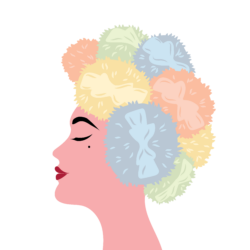The psychological themes found in the Barbie movie, such as identity, self-perception, and societal pressures, have strong parallels to the world of makeup. Makeup, much like Barbie, is often a vehicle for self-expression, yet it also carries societal expectations and ideals of beauty that influence how individuals perceive themselves. Here’s how the two connect:
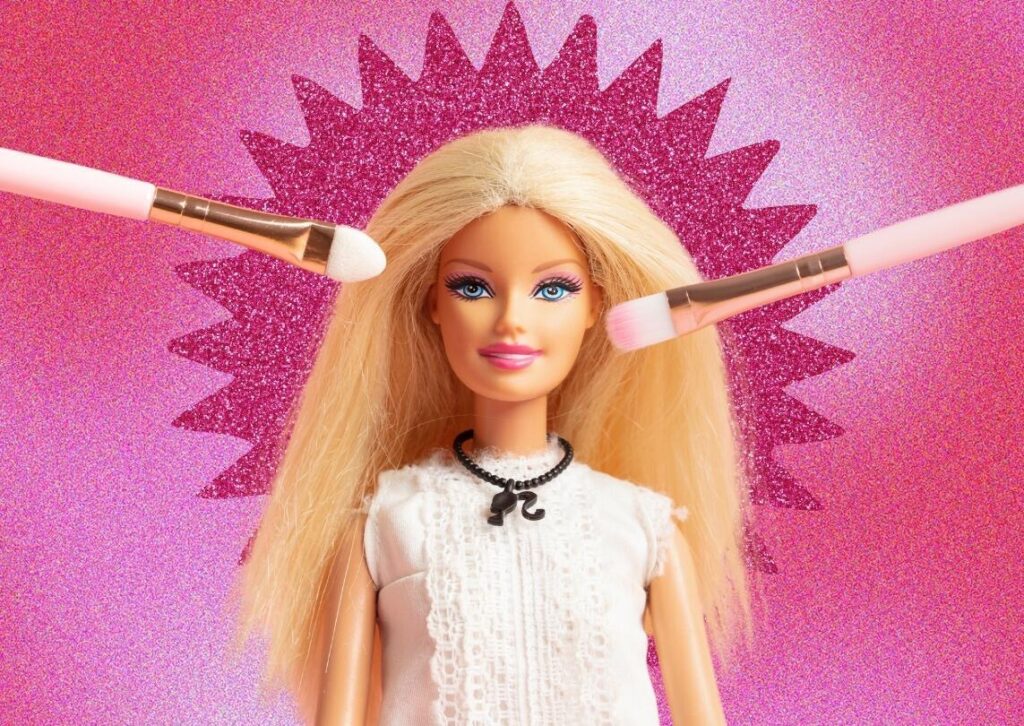
Identity and Self-Expression
In both Barbie and makeup, identity is at the core. The Barbie movie deals with Barbie’s search for authenticity as she realizes that her pre-defined “perfect” identity in Barbie Land no longer fits her evolving sense of self. Similarly, makeup serves as a tool for people to shape and express different aspects of their identity. Just as Barbie experiments with who she is, people use makeup to reflect their mood, culture, personality, or aspirations, creating an outward manifestation of their inner identity.
Makeup allows for identity fluidity, much like Barbie’s journey from her archetypal role toward a more authentic self. The freedom to create different personas through makeup ties into the movie’s message that identity is not fixed and can evolve beyond societal definitions.
Self-Perception and Body Image
Barbie’s struggle with body image and societal expectations mirrors the role makeup often plays in shaping self-perception. Just as Barbie is the embodiment of unrealistic beauty standards, makeup has historically been tied to the pressure to conform to idealized images of femininity. The Barbie movie challenges the idea that one must meet a certain standard to feel valuable or beautiful, which is a prevalent theme in the use of makeup.
Many people use makeup to conceal perceived imperfections, driven by the same cognitive dissonance Barbie feels when she questions the need to live up to society’s beauty ideals. Makeup becomes a means of resolving this dissonance—either by meeting those expectations or, alternatively, by reclaiming one’s beauty in an empowering, self-directed way.
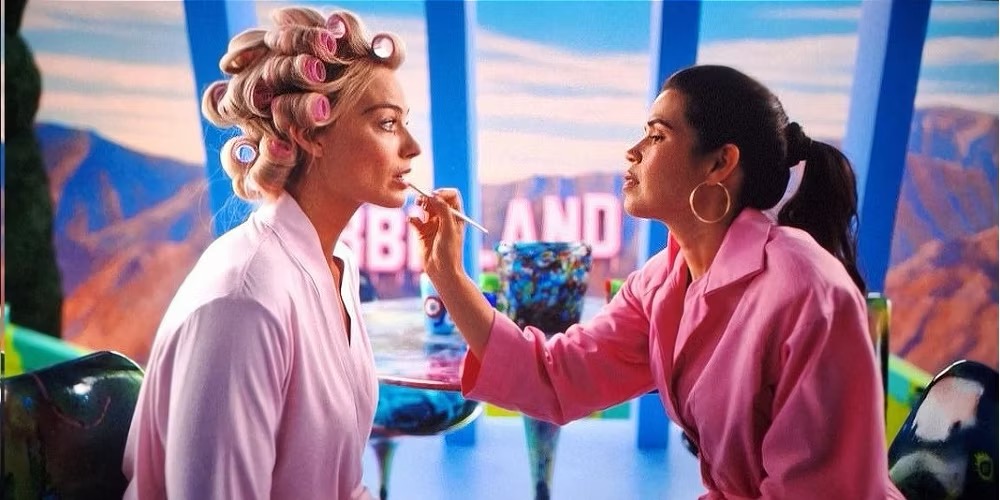
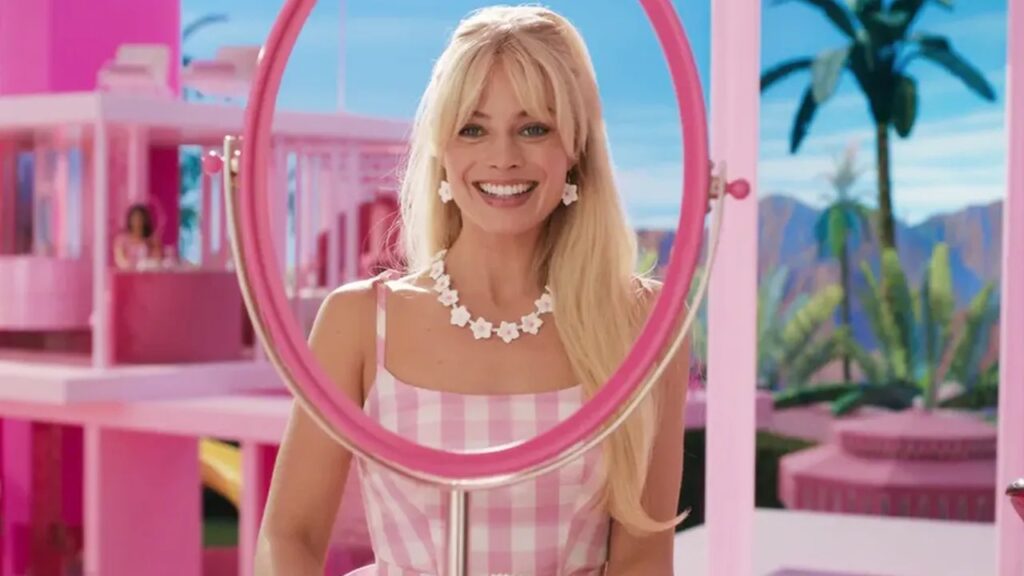
Social Comparison and Consumerism
The Barbie movie critiques how consumer culture shapes self-worth and identity, which also applies to the beauty and makeup industry. Barbie’s world is shaped by commercial ideals of beauty, similar to how makeup products are marketed as tools to achieve perfection. This ties into social comparison theory, where individuals compare themselves to the “ideal” images presented by media and advertising. Makeup is often framed as a means to bridge the gap between how people see themselves and these idealized images, creating both empowerment and potential anxiety.
However, just as Barbie ultimately finds value in her imperfections, many makeup users today focus on self-acceptanceand creativity over conforming to traditional beauty standards. The evolving narrative around makeup encourages people to use it as a form of self-love rather than self-criticism, shifting away from consumerist pressures toward more personal and fulfilling uses of makeup.
Existentialism and Self-Transformation
Barbie’s existential journey, which leads her to question her purpose, mirrors how makeup can be used as a tool for self-transformation and discovery. In the same way that Barbie steps out of her fixed role to find deeper meaning, people use makeup to experiment with different looks and styles, reflecting changes in their personal lives, emotional states, or ambitions.
Makeup can be a form of self-exploration, where individuals try on different versions of themselves, much like how Barbie tries to make sense of her evolving identity. This aligns with the existential theme of creating meaning in a world that often imposes restrictive labels or expectations.
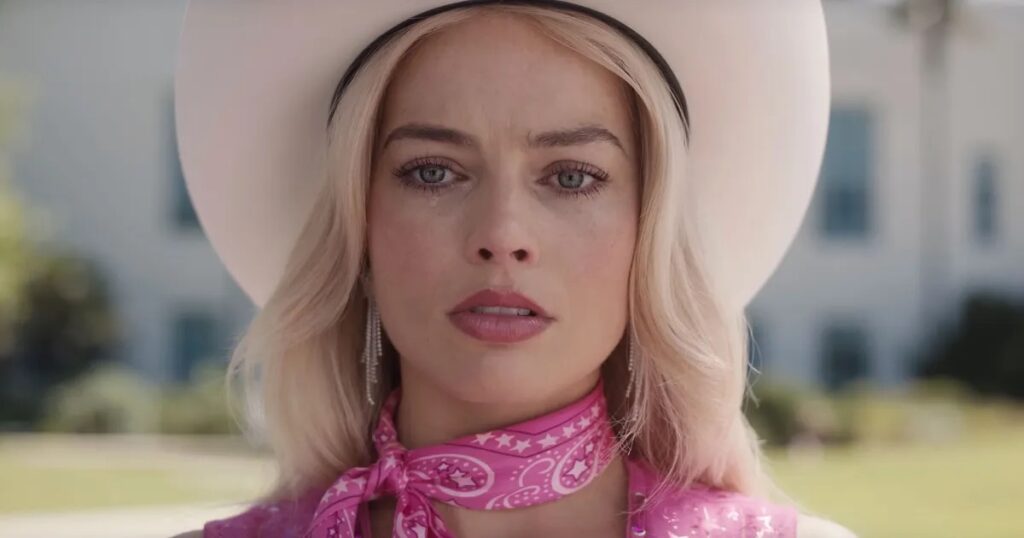
Can we ever truly know ourselves if our reflection is shaped by the expectations of others?
